Q&A: Sustainability Leaders
Following on from our previous Sustainability Q&A Articles, Design Insider is thrilled to welcome Paraskevi Fotoglou, the Sustainability Engineer at Camira Fabrics. Design Insider sat down with Paraskevi to find out more about the role she has at Camira Fabrics and what existing Sustainability models are in place.
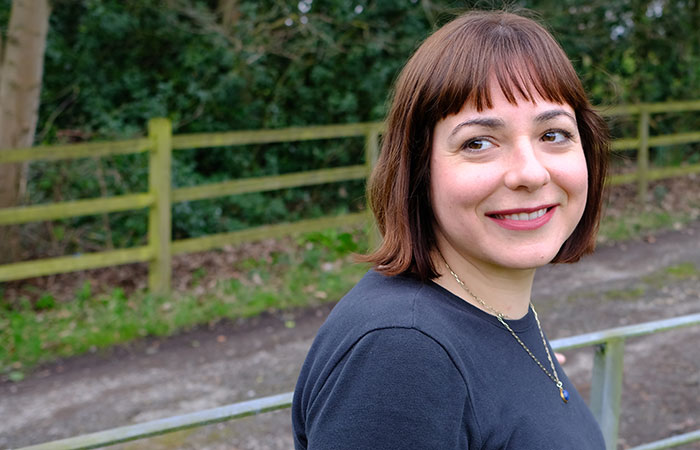
Please could you introduce yourself and Camira?
My name is Paraskevi Fotoglou and I am Sustainability Engineer at Camira Fabrics. I fell in love with textiles when I joined Camira in 2015. My background is in Sustainability and I have worked and studied around Europe in Greece, Spain and Finland before I moved to the UK.
Here at Camira, we are makers, designers and manufacturers of textiles, developing fabrics for the contract sector – including offices and schools, hotels and retail – as well as for passenger transport on bus, coach and rail.
As a brand, sustainability is part of our DNA. We have always been a pioneer of innovation when it comes to a sustainable understanding of textiles and we’re proud to say we’ve been producing recycled fabrics for 20 years, as well as innovating a new category of fabrics made from natural wool and bast fibres, such as nettle, hemp and flax.
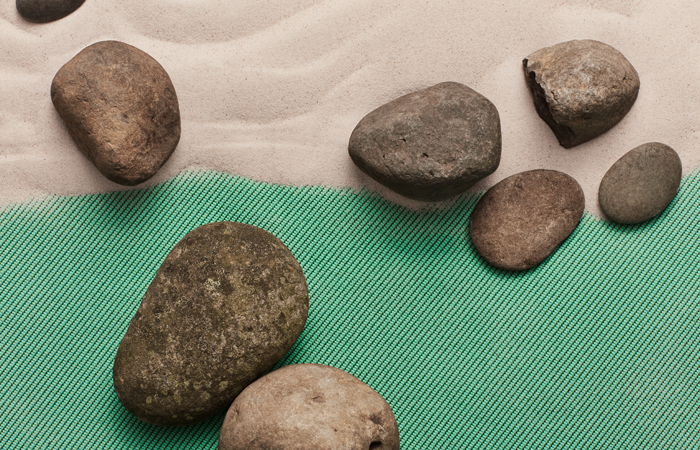
Since 1998 you have addresses sustainability in your products, can you tell us more?
At Camira, we’ve been working on environmental and sustainability advancement for over a generation: we were a very early adopter of the environmental management system ISO 14001 in 1996 when it was largely unheard of, we introduced our first recycled polyester fabrics in the late 1990s, and in the 2000s innovated a totally new category of natural wool fabrics blended with bast fibres from the stems of harvested plants. In the 2010s we achieved zero to landfill at our main UK manufacturing site and we embraced diverse CSR programmes to support Whales and Dolphins and clean water sanitation programmes.
At Camira we’re fortunate to employ people who are passionate not just about our products but about our planet.
How do you control your supply chain?
We never lose sight of where our products start and finish. That’s because we’re so deeply entwined in all the different textile manufacturing processes, going right back to sourcing raw wool on sheep farms in New Zealand, to spinning yarn, weaving and knitting fabrics, and dyeing and finishing. We have six dedicated manufacturing sites, most recently extending our capability into fabric piece dyeing and specialist finishing when we acquired our long-standing dye partner Holmfirth Dyers in 2019. So we exercise unrivalled control of all elements of manufacturing, going from farm to yarn to finished fabric, and handling everything in between.
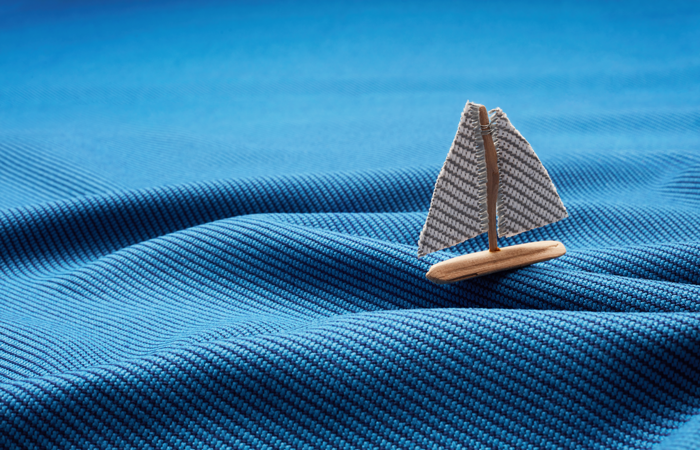
Could you explain the closed-loop process?
We’ve always strived to break the traditional “take-make-waste” model in favour of recycling, re-use and cyclical loops where we upcycle waste inputs to create new fabric. It all began for us with an innovative recycled wool called ReSKU, made from upcycled army jumpers pulled back to fibre, spun into yarn and woven into fabric. Later, we used upcycled coffee sacks to create Century and then made an upcycled wool using take-back remnants from our furniture customers as part of Royal Society of Arts’ Great Recovery Project.
Today, we’ve adopted the circular principle for the key ingredient in our X2, Gravity and Halcyon Cedar fabrics. Here, we’ve partnered with our polyester yarn supplier who takes back our polyester fabric selvedges and yarn cone remnants, then upcycles them back into yarn which we incorporate – up to 25% – in new woven fabric. Many of our polyester fabrics – including top sellers Xtreme, Lucia and Rivet – are made from 100% post-consumer recycled PET from waste plastic bottles. And we’ve taken our fight against plastic pollution one step further in 2020 with the launch of Oceanic.
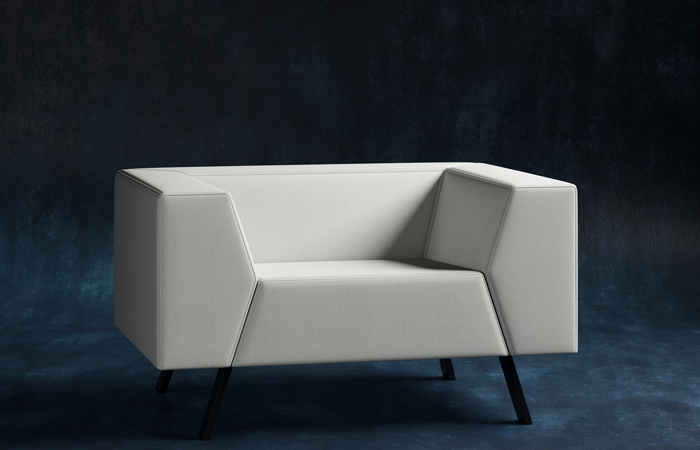
Could you tell us about each of the eco labels your fabrics have been awarded?
There is a plethora of textile labelling concepts in the industry with different scopes and criteria and it is becoming challenging to evaluate and select the right Ecolabel for our products. The standards we are pursuing in Camira are covering various evaluating methods and different market requirements.
Our journey started with the EU Ecolabel a third-party certificate that is based on Life Cycle Assessment studies Type I. The label is awarding products with lower environmental impact against others in the market and the criteria covers chemical substances evaluation and water and electricity consumption, amongst other things.
We have also pursued the Standard 100 by Oeko-Tex® certificate for our piece- dyed polyester products. The certification process is based on testing against harmful substances and therefore our products are harmless in human ecological term.
Last year we also certified 28 of our products for the Indoor Advantage Gold following the trend and importance of the Indoor air quality. This low emitting certificate is qualifying our products for Building standards such as BREEAM, LEED v4, WELL and more.
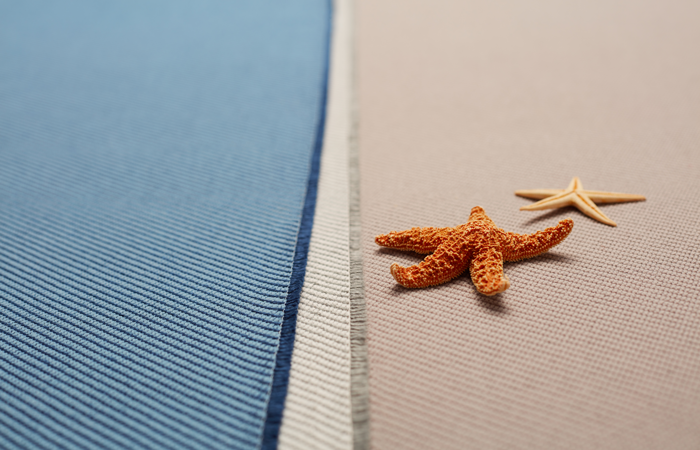
What are your initiatives for 2020?
There has never been a more exciting time to be in textiles. This oldest of crafts is embracing advanced digital technologies, using innovative new materials, and developing new circular business models. And we’re inspired to be a part of it.
Looking to the future, we continue to innovate in naturally sustainable materials, not only expanding our wool-bast fibre fabric portfolio, but introducing new recycled fabrics, new materials and new concepts such as cork and a British Wool fleece available on a roll. We are also pushing the boundaries in our technical knitting capability to be able to use recycled polyester in the innovative ShrinKnit process using patented Shrinx technology. And we continue to look to create a circular business model whereby we take back our wool off-cuts from furniture upholstery and upcycle it into a commercial furnishing fabric.
To read more of the Sustainability Leaders Q&A, click here. For all other sustainability-related articles, click here.





